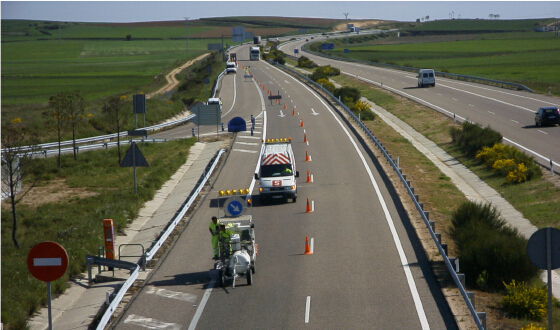Measures which translate into maximum safety
The project envisages upgrading around 2,125 km of highways and toll roads and will provide users with safety and service levels similar to those offered by more recently built highways.
The upgrade programme includes two phases. The first applies to 1,525 km of the A-1 (Madrid-Burgos), A-2 (Madrid-Zaragoza), A-3 and A-31 (Madrid -Alicante) and A-4 (Madrid-Seville) highways, of which 1,000 km have already been reconditioned. The second phase envisages work on 580 km of the A-2 (Igualada-Martorell), A-5 (Madrid-Badajoz) and A-6 (Adanero-Benavente).
The project also establishes a series of status and service quality indicators which oblige the concession holder to ensure that infrastructure maintenance provides optimum conditions for the user.
The support provided to the Ministry by the Ineco team in the development of this project included drafting of the RFQs for the concessions, development of the Inspection Manuals associated with the contracts, monitoring the preliminary engineering, public information processes, the Environmental Impact Statements and consultancy for analysis of concession bids. Once the contracts were awarded Ineco was involved in supervision of the construction projects, monitoring and coordination during execution of the works and technical and legal support in concession contract monitoring and compliance monitoring with respect to the 41 status and service quality indicators during the subsequent operational phase.
Lastly, the project monitored the environmental management systems of the projects, taking into account measures to reduce their harmful impact.



























